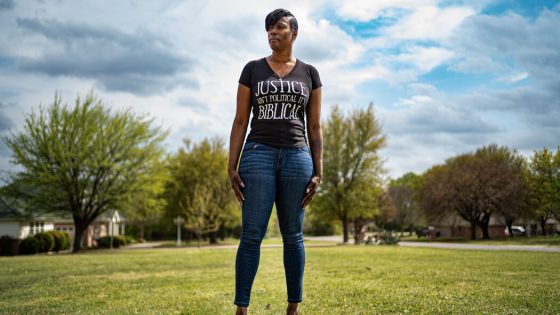In a case that has prompted outrage from voting-rights activists for years, a Texas appeals court reversed itself on Thursday and acquitted a woman who had been sentenced to five years in prison for illegally casting a provisional ballot in the 2016 election.
The decision came two years after the Texas Court of Criminal Appeals, the state’s highest criminal court, ruled that the lower appeals court, the Second Court of Criminal Appeals, had misconstrued the illegal voting statute under which Crystal Mason was found guilty in 2018.
Ms. Mason, 49, of Fort Worth, had been charged with illegally voting in the 2016 general election by casting a provisional ballot while she was a felon on probation. That ballot was never officially counted, and Ms. Mason insisted that she did not know she was ineligible to vote and had acted on the advice of a poll worker who said she could cast the ballot.
Ms. Mason, who has remained free on bond, appealed her conviction. In 2020, the Second Court of Appeals ruled that whether or not she knew she was ineligible to vote was “irrelevant to the prosecution.”
But in 2022, the Court of Criminal Appeals disagreed and asked the lower court to revaluate the case. It stated that the prosecution had to prove beyond a reasonable doubt that Ms. Mason, who had been on a three-year probation after serving a five-year sentence on a federal conspiracy charge, knew that her circumstances had made her ineligible to vote.
In its decision to reverse her conviction and acquit her, the Second Court of Appeals said that the prosecution did not have enough evidence to prove that she knew.
A copy of the ruling was provided by the American Civil Liberties Union and the Texas Civil Rights Project.
“I was thrown into this fight for voting rights and will keep swinging to ensure no one else has to face what I’ve endured for over six years, a political ploy where minority voting rights are under attack,” Ms. Mason said in a statement Thursday. “I’ve cried and prayed every night for over six years straight that I would remain a free Black woman.”
Thomas Buser-Clancy, an A.C.L.U. lawyer who represented Ms. Mason, called her victory a win for democracy.
“We are relieved for Ms. Mason, who has waited for too long with uncertainty about whether she would be imprisoned and separated from her family for five years simply for trying to do her civic duty,” he said.
The Tarrant County District Attorney’s Office, which prosecuted the case against Ms. Mason, could not be immediately reached for comment late Thursday night.
Prosecutors argued that there was reason to believe that Ms. Mason had read the provisional ballot, which spells out voter eligibility requirements, and thus had known she was committing a crime.
Ms. Mason’s conviction has been a flashpoint for voting-rights activists, who said her case underscored racial disparities in the prosecution of criminal voter fraud cases, and the complexity of voting laws for people who have been convicted of crimes.
Source Agencies



